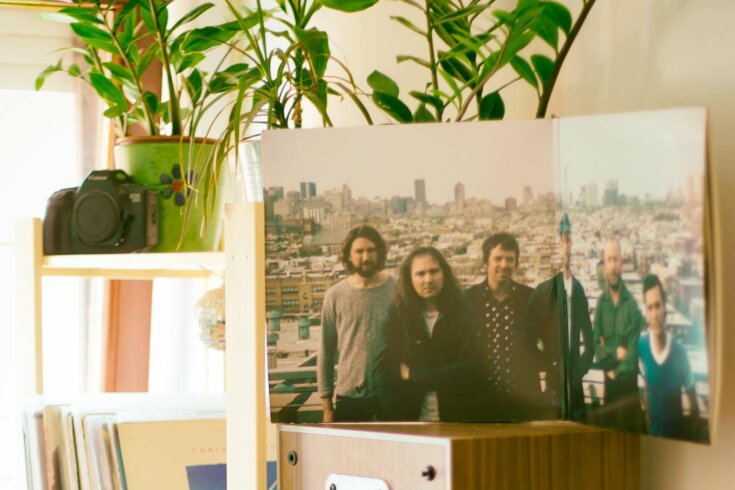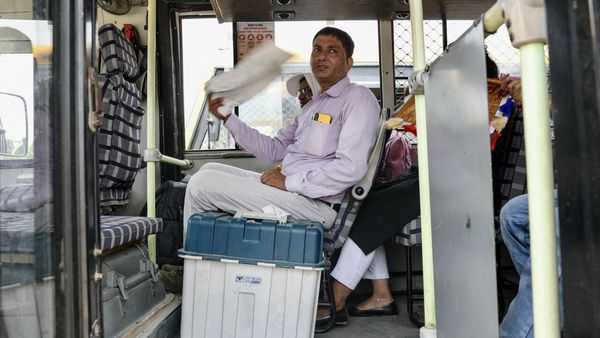
Stephania Desmornes came to Quebec in January 2020, fleeing an increasingly crushing humanitarian crisis in Haiti. A few months into the COVID-19 pandemic, she qualified for a temporary measure the federal government had set up at the time to give asylum claimants working on the front lines in health care a path to permanent residency. After she got her permanent residency in March 2022, her plan was to then sponsor her husband, Valéry, and two boys, Christian and Louis, so that they could join her. That July, she submitted her family’s sponsorship application. In November, Desmornes received a notice that the Quebec government had chosen her husband and sons as suitable potential immigration candidates. “But since then,” she says, “it’s been complete silence.”
Nearly two years later, she’s still waiting for her adoptive government to process her family’s immigration case. “When I first left, my youngest was two years old,” says Desmornes. “I’m missing out on their childhood. I often can’t sleep.” Now she also suffers from bulimia and has gained weight.
I met Desmornes while interviewing members of Québec Réunifié, a Montreal-based group with a following of more than 2,300 sponsors and applicants. They’re advocating for family reunification in their province to match the standards Canadians are entitled to, which is twelve months. In Quebec, the wait time is about two years on average but can stretch up to four or five. According to the advocacy group’s research, it’s one of the longest documented wait times in the world. And many, like Desmornes, say the resulting distress and uncertainty deeply affect their work. “Of course I can’t do my job well,” she says. “Even if I’m physically here, I’m absent.”
Experiences like Desmornes’s embody an unspoken contradiction. Immigration tends to be framed as a solution to this country’s aging population and labour and productivity challenges. Newcomers make up a third of all business owners in Canada who employ paid staff and create jobs in all sectors. But when immigrants are untethered from their loved ones, they can’t be expected to be productive members of society. A policy that keeps family members apart has obvious humanitarian and mental health consequences. But there is also a case to be made that slowing immigration sponsorship is damaging to the economy itself.
“We chose Canada because we heard that this country’s immigration system places value on the family unit, on keeping it together,” Desmornes says. And Canada does have a reputation for an immigration framework that recognizes the significance of familial ties—the family sponsorship category represents the second largest number of newcomers. In 2022, 22 percent of the total immigration applicants to Canada were given permanent residency through it.
Quebec’s immigration policy is distinct from the rest of Canada’s; the province has a unique agreement with the federal government, allowing it more autonomy in managing its affairs. The province selects candidates from the applicant pool; those files are then moved over to the federal immigration department, Immigration, Refugees and Citizenship Canada (IRCC), to continue the vetting process. But Quebec also determines how many applications federal officials can process. And when the number of candidates it puts forward exceeds that annual threshold, the surplus is relegated to a wait queue for the next year.
Currently, Quebec has a self-imposed cap of about 10,000 admissible family sponsorships. That quota, combined with a pandemic-fuelled backlog, means there are now more than 38,000 individuals waiting to be reunited with their family members in Canada. Capping decisions are made in order to ensure immigration levels are sustainable and in line with newcomers’ integration abilities, domestic economic needs, and the province’s capacity to provide social services.
In March, IRCC minister Marc Miller announced that the federal government would provide permanent residency to more than 20,000 of those who have applied for family sponsorship and are waiting to move to Quebec, regardless of the cap. According to a Radio-Canada report, he called it a “moral duty.” Quebec, on the other hand, views the move as overstepping; Christine Fréchette, minister of immigration, francization, and integration, has called it a “direct affront to Quebec’s areas of jurisdiction.” Meanwhile, a Canadian Federation of Independent Business study has found that various regions in Quebec—especially outside of Montreal—are likely to face significant labour shortages in the next few years unless the government supports an increase in immigration quotas. And yet, applicants and their family members continue to wait.
We can “draw the line” between prolonged separations and the impact on the mental health of those involved, says David Edward-Ooi Poon, a Toronto-based public health physician, family physician, and GP psychotherapist. In 2020, he started a group called Faces of Advocacy that fought to reunite families that were separated during the COVID-19 pandemic. Together with Québec Réunifié, Faces of Advocacy recently surveyed 418 people who self-identified as residents of Quebec in the process of sponsoring a loved one. Participants completed multiple questionnaires designed to assess symptoms of clinical depression and anxiety. (According to Poon, while these specific tools cannot diagnose participants, the clinically valid data created can offer a sense of the mental health burden experienced by those suffering from familial separation.)
The results, published in April, point to a disturbing reality. The majority, 97 percent of respondents, met scoring criteria consistent with symptoms of major depression—reporting feelings such as hopelessness, sleep disruptions, poor energy, and thoughts of self-harm. And 73 percent of participants had scores consistent with symptoms of generalized anxiety disorder—reporting such feelings as nervousness, uncontrollable worrying, trouble relaxing, and feelings of irritability. In comparison, according to a Statistics Canada survey of mental health trends between 2000 and 2016, 5.4 percent of Canadians are affected by major depression and 4.6 percent by anxiety disorders. And all of the members of Québec Réunifié that I have spoken with say that the debilitating wait has made it extremely difficult to remain productive.
Carlos, who requested a pseudonym to avoid political consequences, has been married for three years and says that the wait for his wife, a young lawyer in Colombia, to join him since they first applied for sponsorship in 2021 has stunted their lives. While in university, he had to put his studies on hold to visit her every few months. “We’ve suffered a lot because of this separation. Last year, I developed anxiety and began having panic attacks.”
Cynthia, who asked that only her first name be used because she feared reprisals at work, is an HR manager for an arm of the Quebec government. She married Eduardo, who is from Cuba, in October 2022 and applied to sponsor him a month after their wedding. After three rounds of rejections for a visitor visa, Eduardo has finally received one and is currently with Cynthia in Quebec. The couple, however, are still in limbo waiting for their sponsorship case to be processed. “I have to do well at work. I have to be an extremely mobilizing leader for my staff in a context of labour shortage,” Cynthia says, “but I have significant health problems linked to all of this: stress, severe anxiety, sleep disturbance, and emotional distress on a daily basis. How is one meant to perform professionally with a personal life like this one?” Her health struggles drove her to take an extended sick leave.
When then federal immigration minister Sean Fraser announced in May 2023 that those with sponsorship cases in the current backlog could apply to get their families visitor visas, Desmornes optimistically took advantage. But while that move was made in order to strengthen family-class immigration through faster and more efficient processing, her family’s application was swiftly rejected. The reason? Desmornes’s husband and two kids had too many ties to Canada for the processing agent to be sure that they would go back to their country of origin at the end of their visit. The contradictory reasoning is lost on Desmornes.
“My children aren’t going to school anymore because of the violence in Haiti. My husband can’t work either. I support everyone,” she says. Since March 3, the Caribbean nation has been in a state of emergency, with an escalating gang turf war, an increasingly powerless government, and the residuals of a series of natural disasters. “When I went to visit in January, I couldn’t imagine that people could live like that. My family is in a precarious state. Everything is expensive now too, so my kids can eat but never until they’re full.” Her youngest son, after warming up to the mother he hadn’t seen for a few years, explained to her the ins and outs of their lives: once you hear gunshots—a daily event—it’s time to duck and take cover. Desmornes was shocked by the casual way in which her son delivered this information. Since then, the gun violence has gotten worse. In mid-May, Desmornes learned her husband was nearly killed late one evening, on a visit to his mother’s home, by armed bandits as they terrorized the neighbourhood.
Today, Desmornes continues to live alone in Montreal, in an apartment that’s meant to house all four of them. Her companions: a seemingly interminable wait for news on her family’s sponsorship case and a persistent, disabling depression. “After the visitor visas rejection, I stayed in my apartment for fifteen days straight,” she says. “I didn’t have the strength to shower most of the time. I couldn’t even walk out for fresh air. All I could do was cry.”







